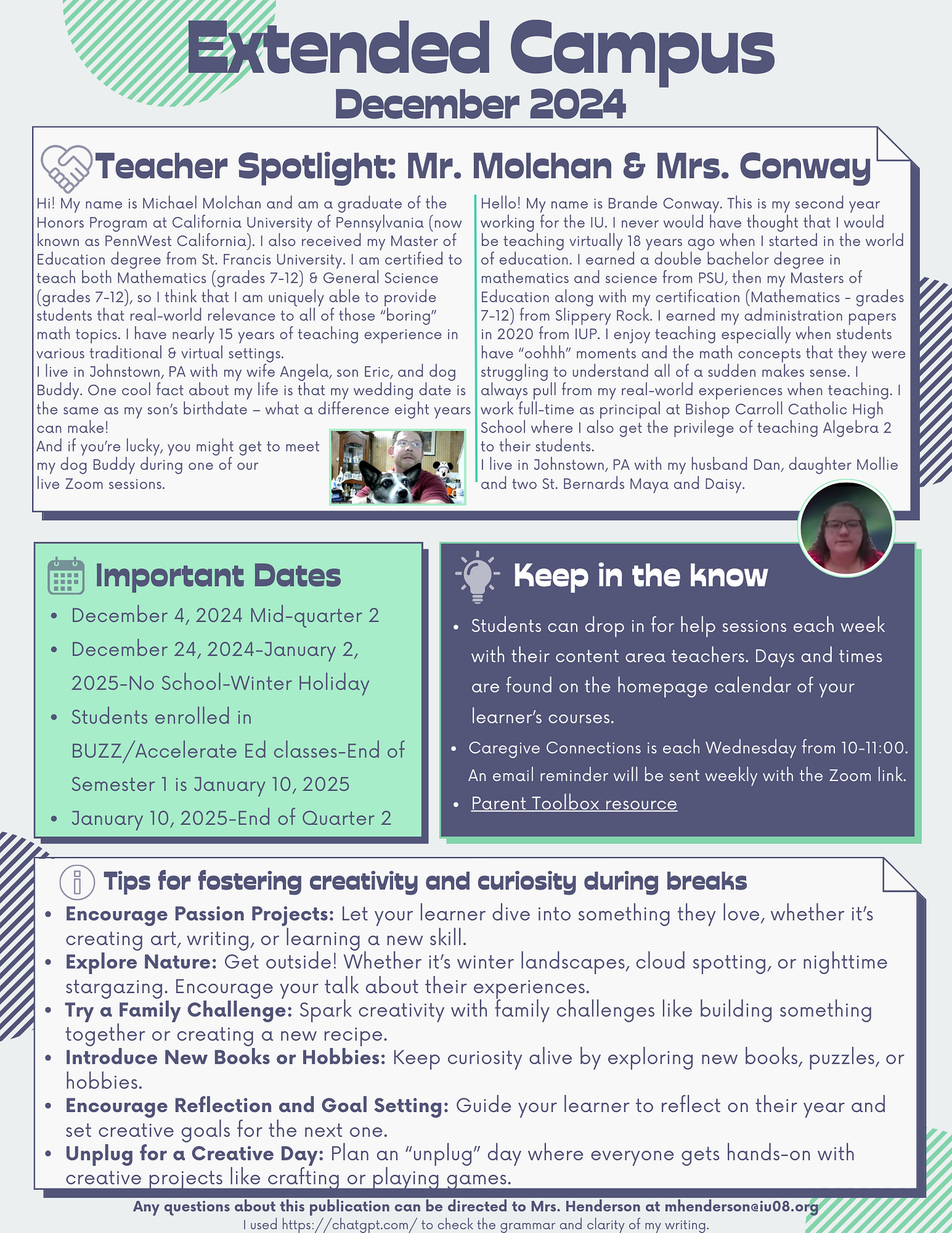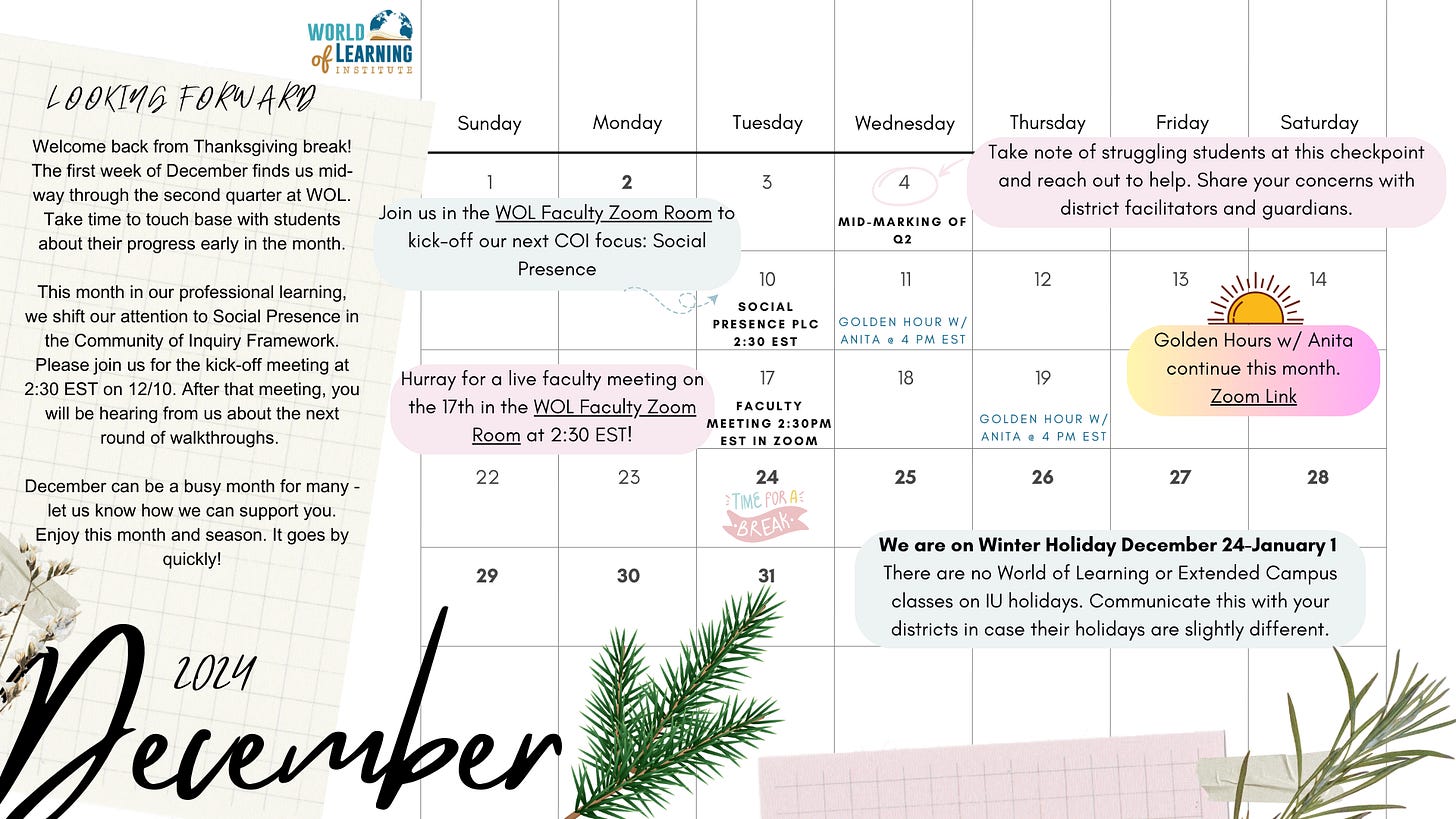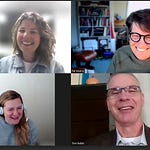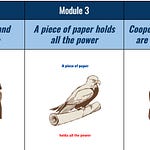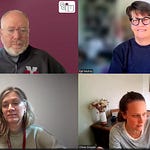Good Morning!
After reading Dr. Tom Butler’s newsletter The Learner-Centered Leader where he laid out some serious questions that face public education - I was intrigued and excited by the question:
Do we have the courage, curiosity, and creativity to rise to the challenge?
I know that the WOL can and will respond to the question.
Simply put, the challenge Tom wrote of is can we create a culture in our schools where parents want to participate - in a time of parent choice? Are we up for the challenge of shifting how we think about schools where parents feel heard and a love of learning is nurtured?
My answer is yes. Years ago I wrote ‘They tell me I am moving too fast’ and today, I believe we can’t move fast enough if we (Public Education) want to be relevant and regarded in our communities. It’s not about us and them. It needs to be about All of us - in this together.
Here is a small dip into how the World of Learning is trying to make progress in answering the questions. AND - we don’t want to do it alone. We want to work with you - our IU8 districts to make this shift, support teachers, and support families and communities in realizing our goals of trustworthy and viable schools.
For the good,
Pat
How WOL Can Help:
Emphasis on Relationships and Engagement
Professional Development: Offer training for teachers to build relational trust and engagement strategies, emphasizing techniques for creating connections in virtual environments
Tools for Connection: Provide templates and strategies for using surveys, icebreakers, and interactive assignments that allow teachers to better understand students’ interests and needs.
Ongoing Support: Help districts implement routines for consistent communication (e.g., “Monday Morning Messages” or weekly live sessions) to foster strong relationships and engagement.
Support Innovation
Customized Learning Models: Showcase innovative virtual teaching models like WOL’s superhero-themed framework, which emphasizes flexibility, innovation, and resilience.
Creative Curriculum Design: Collaborate with districts to design project-based learning experiences that encourage problem-solving and creativity while aligning with curricular goals.
Access to Cutting-Edge Resources: Provide access to interactive technology, virtual reality tools, and global exchange opportunities that engage students in unique, culturally immersive learning.
Growth Mindset and Perseverance
Modeling Grit and Growth: Train educators to integrate growth mindset principles into their classrooms, using WOL’s strategies for resilience and perseverance in the face of challenge.
Mentorship Programs: Offer mentoring for teachers to navigate new tools and approaches, fostering confidence and perseverance as they adapt to virtual teaching environments.
Student-Centered Approaches: Create opportunities for students to practice persistence through scaffolded learning goals, regular feedback, and opportunities to revise and improve their work.
Practical Solutions and Collaboration
Partnership Frameworks: Assist districts in identifying gaps in course offerings and filling them with WOL’s language programs, which range from Arabic to Japanese, Calculus to Elementary Library.
Flexible Scheduling: Work with districts to customize schedules for synchronous and asynchronous instruction, ensuring every student can access the courses they need.
Capacity Building: Partner with schools to design sustainable programs that train district teachers to eventually lead virtual courses.
Debunking Myths and Promoting Accessibility
Demonstrating Effectiveness: Share data and case studies that show how virtual instruction achieves results comparable to face-to-face learning.
Addressing Equity: Offer affordable and scalable solutions to bring world language programs to underserved areas, ensuring students everywhere have access to high-quality instruction.
Cultural Competency: Provide materials that dispel myths about virtual learning, showcasing its benefits for cognitive development and career readiness.
Leveraging Feedback and Continuous Improvement
Feedback Systems: Work with districts to implement feedback mechanisms modeled after WOL’s practices, ensuring students receive timely and constructive responses to their work.
Teacher Collaboration: Facilitate peer review sessions and team drives where educators share feedback on assignments and strategies, ensuring continuous professional growth.
Student Reflection Opportunities: Help districts design systems for student self-assessment and reflection, encouraging learners to take ownership of their progress.
Let’s revisit our conversation with Carrie Loose
It was great to talk with Carrie Loose from Williamsburg Community Schools and Lauren, about the transformative power of educational partnerships, particularly in the context of virtual learning. They both shared insights on building successful relationships and the importance of collaboration to enhance student success. I love it when the value of a supportive network in education, the role of strong communication, and the ongoing efforts to create flexible and student-centered learning environments precede all other means for building educational partnerships.
5 Key Points:
The Role of Relationships in Education:
Carrie emphasizes that relationships are at the heart of effective partnerships. Trust and consistent communication between educators, administrators, and students foster an environment where students feel supported and motivated to learn.
The Importance of Communication:
Both guests stress the necessity of open, regular communication to address challenges and celebrate successes. Lauren highlights that being responsive and adaptable to student needs builds trust and ensures a seamless learning experience.
Adapting to Unique Circumstances:
Carrie and Lauren share stories about adapting solutions to meet student needs, such as accommodating co-op schedules or adjusting to unexpected staff shortages. They discuss how collaboration has allowed for innovative solutions like flexible scheduling and alternative course delivery methods.
Creating a Culture of Feedback and Improvement:
Lauren discusses how Extended Campus has implemented feedback loops with partner districts. This approach enables continuous improvement and ensures that program offerings align with district needs and student outcomes.
Empowering Students Through Skill-Based Learning:
The episode explores the potential of moving beyond traditional curricula to focus on skill-based learning. Carrie discusses the relevance of preparing students for the workforce by integrating practical, real-world skills into their education, making learning more meaningful and engaging.
Carrie's Takeaways on Partnerships: Carrie appreciates the flexibility and dedication of the World of Learning team in addressing the needs of rural students. She values the collaborative nature of the relationship, which helps ensure that students have access to necessary courses and resources, even when in-person options are unavailable. She believes when you are deciding to partner with someone outside of your school all of the team should be at the table. We believe she, as a counselor, is key!
Lauren's Insights on Building Strong Educational Networks: Lauren underscores the significance of empowering district partners through consistent communication and personalized support. She shares how Extended Campus fosters a sense of community among partners, enabling them to exchange ideas and implement best practices for student success.
If you want to know more about how we partner with schools and communities - reach out. We enjoy the conversations and ideas that make us more creative and responsive to your local landscaper.
Quick Bites
Quick and Easy strategies for supporting future thinking in classrooms!
Family Newsletter
Link to Parent Toolbox (Including Zoom for Caregiver Connections)
Calendar of Events
MORE
More about Extended Campus - with Jeff



